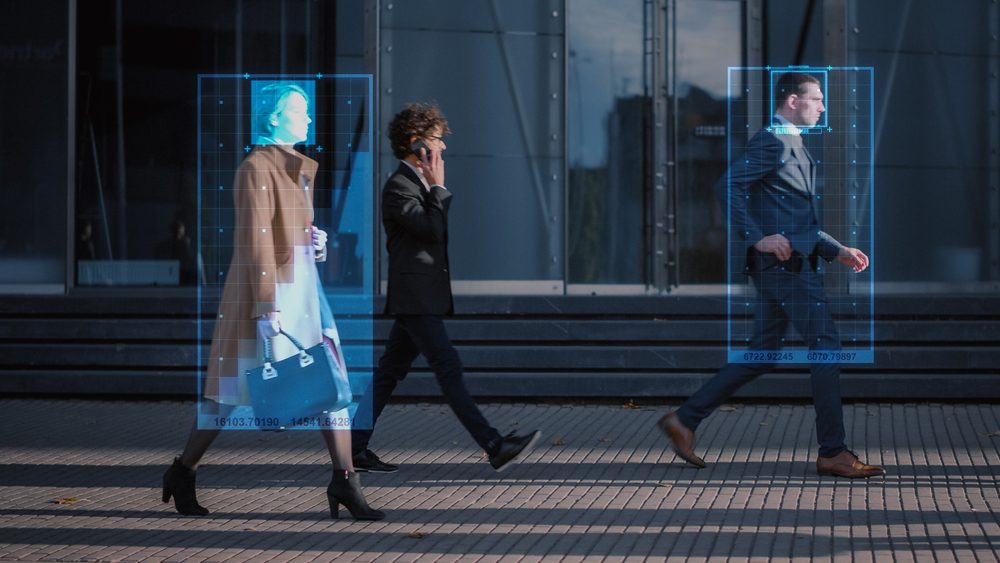
A last-minute push by the EPP to allow the use of real-time biometric tracking by law enforcement agencies was squashed Wednesday, June 14th, as the European Parliament comfortably passed its landmark AI Act with 499 votes in favour, 28 against, and 93 abstentions.
BREAKING: The European Parliament has adopted the #AI Act with an overwhelming majority. No last-minute amendment outside the text adopted at the committee level made it, including those from the European People's Party on Remote Biometric Identification. pic.twitter.com/j9CY8loTqZ
— Luca Bertuzzi (@BertuzLuca) June 14, 2023
The EU’s flagship technology policy is meant to get ahead of the AI revolution. Work on the Act has been ongoing for two years and seeks to harmonise regulatory standards across the bloc by establishing risk assessment criteria for all new AI products.
The Act, which was debated at a plenary session in Strasbourg ahead of Wednesday’s vote, has been criticised for simultaneously strangling innovation and presenting a threat to civil liberties.
MEPs inserted a ban on the use of AI technology for border security during the committee stage in May after which the EPP—following the breakdown of an agreement prohibiting new amendments—introduced new amendments to allow for real-time biometric tracking. The EPP had lobbied for clauses to enable authorities to use biometric tracking to deal with emergencies such as counter-terrorism or child abduction cases.
#AIAct just voted! ✅👏
— Thierry Breton (@ThierryBreton) June 14, 2023
The EU Parliament becomes the first House in the world voting on a comprehensive #AI regulation!
Today’s vote shows that we can reconcile trust and innovation 🇪🇺 pic.twitter.com/Gc3DhbIbbo
During Tuesday’s debate, the EPP was accused by the S&D’s Petar Vitanov of backtracking on civil liberties clauses inserted into the Act during the committee stage.
Dutch MEP Jeroen Lenaers defended the EPP’s actions to The European Conservative, explaining that the emergency provisions were needed in order to boost effective policing.
This was not enough for many MEPs, both on the Left and Right. AfD’s Markus Buchheit likened it to surveillance by the Chinese Communist Party.
“That so many MEPs would even dare support live facial recognition technology shows just how authoritarian and Chinese CP-lite so many EPP members have become,” the German MEP declared in a statement to The European Conservative.
🇬🇧 Today, the European Parliament will vote on stopping flawed #facialrecognition (#AIAct).
— Patrick Breyer #JoinMastodon (@echo_pbreyer) June 14, 2023
Conservatives want to lead you into a dystopian future, I explain in my plenary speech. Let us prevent that!
More: https://t.co/GTBmSrBfOK pic.twitter.com/Sxp4b6fJ9h
MEPs also aligned the definition of AI to OECD standards during Wednesday’s vote, adding tough new disclosure regulations to generative AI technology, such as ChatGPT, that will force companies to potentially disclose data used for the training of new AI.
The EU has faced claims of unfairly throwing its regulatory weight at Big Tech in order to compensate for its domestic lack of innovation. ChatGPT CEO Sam Altman met with Commission officials in Brussels in late May to discuss AI’s future in the bloc.
EU copyright and privacy legislation has prevented the emergence of certain AI products from reaching European consumers, and many pundits warn of the Continent being left in the dust due to overregulation.
After clearing Parliament, the AI act will head to the final legislative hurdle of the trilogue stage where MEPs will hammer out details together with the Commission and the EU Council.
The passing of the AI Act is expected by the end of this year. With Sweden handing over the reins of the EU Council to Spain on July 1st, the Act will be a major feature of the Spanish Council Presidency.
